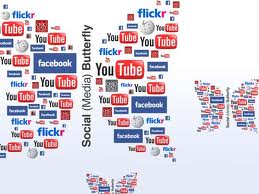 On Tuesday, I joined the Fox West Philanthropic Network and attended my first meeting in Geneva, Illinois. The program that day focused on social media and the value it brings to non-profit organizations as a marketing tool. While no one openly expressed doubts about the premise of the presentation, I could almost hear some of the more “old school fundraising professionals” questioning the effectiveness of “this social media thing“.
On Tuesday, I joined the Fox West Philanthropic Network and attended my first meeting in Geneva, Illinois. The program that day focused on social media and the value it brings to non-profit organizations as a marketing tool. While no one openly expressed doubts about the premise of the presentation, I could almost hear some of the more “old school fundraising professionals” questioning the effectiveness of “this social media thing“.
On Wednesday morning, I learned (via Twitter) that the United States’ embassies in Egypt and Libya were under siege and American foreign service employees had been killed. This morning protests and violence seem to be spreading. After a quick Google search, I learned from a Washington Post article that the embassy in Yemen had been breached, and protests are now occurring in Afghanistan and Iraq.
Where is this all coming from? Why are so many people angry? According to the Washington Post:
“The spreading violence comes as outrage grows over a movie called “Innocence of Muslims” that mocked Islam’s Prophet Muhammad. The amateurish video was produced in the U.S. and excerpted on YouTube.”
You read that right . . . a crappy little YouTube video produced in California provoked action (aka mass violence and death) half way around the world.
For those of you who still think that this “social media thing” is a passing fad and holds little to no value for non-profit organization, I direct your attention to the Middle East and ask that you please re-think your position on these very powerful communication tools.
 I believe there are a number of lessons to be learned and conclusions to be drawn about social media from recent events emanating from the other side of the planet. The following are just a few revelations I’ve recently had:
I believe there are a number of lessons to be learned and conclusions to be drawn about social media from recent events emanating from the other side of the planet. The following are just a few revelations I’ve recently had:
- Facebook and Twitter were used as powerful tools of revolution that fueled the “Arab Spring”. If these tools can fuel a revolution and overthrow powerful dictators, then these tools can be useful to non-profit organizations who wish to communicate with clients, supporters, volunteers, staff and donors.
- YouTube is especially powerful because it visual in nature. If one YouTube video can cause this much action half way around the world, then your agency can figure out how to introduce people to your mission and engage them in doing good.
- These new communication technologies are powerful and shouldn’t be misused because the consequences can be huge and unforeseeable. If you don’t know about The Butterfly Effect, then I suggest you read up on it before developing any social media strategy.
- Oh yeah . . . you probably should steer clear of anything to do with the Prophet Muhammad when it comes to your social media strategy.
Developing your organization’s social media strategy will not be easy. What works for the agency down the street from you, won’t necessarily work for you. I encourage you be brave and commit to experimenting. Those things that don’t feel right or don’t work . . . don’t do them again. Don’t be reckless (please see observation #4 above), but commit yourself to learning and be prepared to celebrate failure.
The following YouTube video washed into my email inbox just a few weeks ago from a small non-profit agency in Wheaton, Illinois called Senior Home Sharing:
[youtube=http://www.youtube.com/watch?v=9Q-de0t_-nM&feature=youtu.be]
There are a lot of things I would’ve done differently, but you have to applaud this organization for what they are trying to accomplish and message to potential clients, supporters, and donors.
The following are a few resources you may want to investigate if recent Middle East events have changed your mind about your non-profit organization’s approach to social media:
- Connection Cafe: “10 Tips to Jumpstart Your Nonprofit Social Media Plan“
- idealware: “The Nonprofit Social Media Policy Workbook“
- YouTube: YouTube Nonprofit Program
Good luck, and you may want to go back an re-read my list of observations and keep in the back of your mind my fourth observation as you proceed.
How does your agency use YouTube? Has it been effective? How do you know? Do you have a written social media plan? Policies? Are you willing to share those things with other non-profit professionals? Please scroll down to the comment box and take a moment to share your thoughts, experiences, and answers to one or more of these questions. We can all learn from each other.
Here’s to your health!
Erik Anderson
Founder & President, The Healthy Non-Profit LLC
www.thehealthynonprofit.com
erik@thehealthynonprofit.com
http://twitter.com/#!/eanderson847
http://www.facebook.com/eanderson847
http://www.linkedin.com/in/erikanderson847
